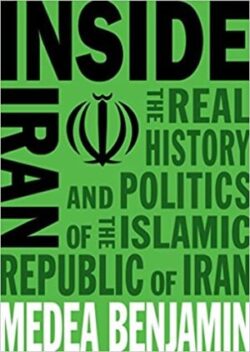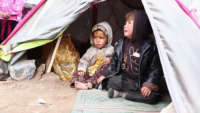
As Afghanistan faces a dire humanitarian crisis, we look at how more Afghans may die from U.S. sanctions than at the hands of the Taliban. The U.S.’s attempts to block support for the new de facto government have prevented vital funding from flowing to the nation’s civil servants, particularly in education and the health sector. Dr. Paul Spiegel says conditions in the hospitals he visited in Kabul as part of a World Health Organization emergency team are rapidly deteriorating, and he describes the lack of heat and basic amenities as winter descended. “There’s been a drought. There’s food insecurity. And all of this has been exacerbated due to this economic crisis and due to lack of the U.N. and NGOs being able to pay people in the field,” says Spiegel. “What we see now is that it’s not the Taliban that is holding us back. It is the sanctions,” says Jan Egeland, secretary general of the Norwegian Refugee Council.
TRANSCRIPT
This is a rush transcript. Copy may not be in its final form.
AMY GOODMAN: This is Democracy Now!, democracynow.org, The War and Peace Report. I’m Amy Goodman.
This week the United Nations launched a nearly $5 billion aid appeal for international donors to Afghanistan. U.N. Humanitarian Affairs and Emergency Relief Coordinator Martin Griffiths said, without immediate assistance, a full-blown humanitarian catastrophe looms in Afghanistan.
MARTIN GRIFFITHS: A million children potentially suffering severe acute malnutrition. A million children. Figures are so hard to grasp when they’re this kind of size, but a million children in Afghanistan at risk of that kind of malnutrition, if these things don’t happen, is a shocking one.
AMY GOODMAN: Meanwhile, in Washington, D.C., the Congressional Progressive Caucus is demanding the Biden administration lift economic sanctions imposed after the Taliban overran Afghanistan in August. The caucus tweeted, if the current U.S. economic policy toward Afghanistan continues, quote, “there could be more civilian deaths this year than there were in 20 years of war.”
For more, we’re joined in Oslo, Norway, by Jan Egeland, the secretary general of the Norwegian Refugee Council. And in Baltimore, Maryland, we’re joined by Dr. Paul Spiegel, director of the Center for Humanitarian Health at Johns Hopkins University’s Bloomberg School of Public Health. He returned last month from a five-week visit to Afghanistan as a consultant for the World Health Organization; his Washington Post opinion piece headlined “Hospitals are collapsing in Afghanistan. At this rate sanctions will kill more people than the Taliban.”
We welcome you both to Democracy Now! Dr. Spiegel, let’s begin with you. You just recently returned from Afghanistan. Explain exactly what’s happening there and how that relates to U.S. sanctions.
DR. PAUL SPIEGEL: Thank — excuse me. Thank you, Amy.
What is happening is there’s a country in freefall, economic freefall, which is affecting all aspects of their lives, and particularly on the health situation. All salaries stopped being paid on August 15th, when the Taliban took over the country. And while there has been some now salaries being paid for basic healthcare, the hospitals are not being — the salaries are not being paid. Healthcare workers are still coming, but there’s no medicines, no — no medicines, no heat. And what we’re seeing are people can’t even afford to get to the hospitals, even if there were medicines to be had.
AMY GOODMAN: And so, talk specifically about the West’s approach to the Taliban right now.
DR. PAUL SPIEGEL: Right. We call — we were told to call them the de facto authorities. And what has happened in the West is that they have very hard-hitting sanctions that do not allow any funds to go to the de facto authorities, but in a very broad way. And it means that government-run hospitals cannot receive money. Government-run schools cannot receive money. Ministries of health, for technocrats, they’re not able to receive money. And so you have a healthcare system — particularly the higher levels, because there are some differences in the lower levels — that are not receiving funds whatsoever. Yet these are civil servants, just like in the U.S. and other areas, that are required to be able to ensure that healthcare services, educational services are running. And everything is falling down. And it’s not just the sanctions, but it’s also a huge issue in terms of the banking system, the central bank and a massive liquidity problem. So, even when I was there and we were paying polio workers and measles workers to try to get vaccines, there was insufficient money in the country to actually pay these people to do their jobs.
AMY GOODMAN: So, in terms of the population, the U.N. reports Afghanistan’s population, nearly 23 million people, are facing extreme hunger. At least a million children are at risk of dying of starvation?
DR. PAUL SPIEGEL: Yes, yes. And I would add that it’s not — the crisis is already happening. It’s not as if we can stave off or we can prevent this from happening. What we need to be able to do is minimize the incredibly negative effects that we’re seeing. There’s been a drought. There’s food insecurity. And all this has been exacerbated due to this economic crisis and due to the lack of U.N. and NGOs being able to pay people in the field, particularly anyone related to the de facto authorities, because of the very strong U.S. sanctions.
AMY GOODMAN: I want to bring Jan Egeland into this conversation, secretary general of the Norwegian Refugee Council. You have been to Afghanistan scores of times since, what, back to 1996, when you were deputy foreign minister of Norway in Afghanistan. Can you talk about how the situation today compares and what you think needs to happen?
JAN EGELAND: Well, there hasn’t been this kind of a dramatic collapse in the economy of Afghanistan within months ever before, I think. What happened, really, in August, when the Taliban took over and the NATO countries went for the door, was that they left behind 40 million civilians, the same 40 million civilians whom they had defended with a trillion-dollar military campaign over the last 20 years. Those were left behind, the same women and children, the same doctors and nurses and teachers and so on.
So, what we’ve seen — and I have 1,400 colleagues on the ground. Norwegian Refugee Council has 1,400 relief workers on the ground. What we see now is that it’s not the Taliban that is holding us back. It is the sanctions. It’s that there is no banking at all and that the teachers and nurses and doctors and so on are not being paid because their salaries are sitting in Washington, and it’s with the World Bank. And the U.S. and all of the other members of the World Bank are not releasing this money. So, a lot of things has to happen tomorrow, unless we will see epic loss of life.
AMY GOODMAN: On Thursday, U.N. Secretary-General António Guterres called for a suspension of rules blocking the use of international funding in Afghanistan. Some $9.5 billion in Afghan central bank reserves remain blocked outside the country, mainly here in the United States, in response to Taliban rule since August. Guterres addressed the Taliban also.
SECRETARY–GENERAL ANTÓNIO GUTERRES: As I appeal to the international community to step up support for the people of Afghanistan, I make an equally urgent plea to the Taliban leadership to recognize and protect fundamental human rights, and, in particular, the rights of women and girls. Across Afghanistan, women and girls are missing from offices and classrooms. A generation of girls is seeing its hopes and dreams shattered. Women scientists, lawyers and teachers are locked out, wasting skills and talents that will benefit the entire country and, indeed, the world. No country can thrive while denying the rights of all of its population.
AMY GOODMAN: To be clear, he was calling for the lifting of the blocking, of the sanctions against Afghanistan. Jan Egeland, if you can talk about the Taliban and also the U.S. approach?
JAN EGELAND: Well, number one, I mean, the Taliban, we need to actively engage on all levels, so that there is gender equality in Afghanistan commensurate with that of other Islamic countries. We are doing that. I met with the Taliban top leadership at the end of September. This was only a few weeks after they took over. I brought up the need for our female staff to have the same freedom of movement as the male colleagues have. No male guardian should ever be needed to accompany that. And I got a yes and a yes in my meetings in Kabul, and then we have negotiated with the 14 provinces where we operate the same. We have started with schools for girls and female teachers now in all the 14 provinces, but we have not yet gotten the secondary and tertiary education. And we need to fight for that, really. But it would be the ultimate insult to these girls and their mothers if they have to starve and freeze to death before we are getting through to all of the local Taliban commanders on all of these issues.
So, that’s the message also to the U.S. We’ve never held money back from starving people because there has been discrimination from the authorities. I constantly hear the phrase “not a penny, not a cent to the Taliban.” I agree with that. It’s not the Taliban that are receiving this funding. It’s going through international organizations, the United Nations, the international nongovernmental organizations, the local nongovernmental organizations, NRC, my own organization, directly to the people. We have full operational freedom at the moment.
AMY GOODMAN: I want to get Dr. Paul Spiegel’s response to State Department spokesperson Ned Price describing the U.S. as “the world’s humanitarian leader for the Afghan people.” At this point, would you agree?
DR. PAUL SPIEGEL: Yes. They are providing a tremendous amount of money still to Afghanistan. The problem is that we’re talking hundreds of millions when billions are needed. And the issue is, in my view, is that it needs to be twofold. There needs to be sufficient liquidity in the system. And it gets — when you get into the details, it’s complicated, because the afghani, the currency, there isn’t sufficient supply, so it needs to be — there needs to be printed more money, actually, coming into the country. My concern is that that’s going to take far too long. It needs to be done very, very quickly.
But on top of that, I would say, in terms of you can — the U.S. can still provide humanitarian assistance. It needs to be significantly more. And as Jan Egeland said, it’s not a black-and-white situation. You need to be able to — it’s no good to ensure that women have equal rights, but they’re dead. And it is such a severe situation right now that the priority of humanity must take over, while ensuring that there are sufficient safeguards that money is not going to the Taliban, the Taliban leadership. But right now the communication of where the money can go is unclear. And there is such unclarity that many organizations, most organizations, are very anxious to provide money to civil servants, to hospitals, to government-run schools. And that has to change immediately.
AMY GOODMAN: So Dr. Spiegel, your response to the Congressional Progressive Caucus demanding the Biden administration lift economic sanctions imposed after the Taliban took over, the congressional caucus tweeting, if the current U.S. economic policy toward Afghanistan continues, quote, “there could be more civilian deaths this year than there were in 20 years of war”? What has been the Biden response to the progressives?
DR. PAUL SPIEGEL: Yeah. I would nuance the idea of saying lifting sanctions versus ensuring there are sufficient humanitarian exceptions, as we’ve seen in Venezuela and as we’ve seen in Yemen, amongst other countries. So, whether it is completely stopping the sanctions — I think that’s a political decision. But regardless whether it’s stopped, there can be very clear humanitarian exemptions to be able to ensure the money, or at least the — yeah, the money flows, and the people are able to undertake their interventions.
Since I returned — I returned around mid-December — the Biden administration has made clear some of the humanitarian exemptions. And I’ve spoken to the field, and what they’ve said is there is more clarity, but it hasn’t yet trickled down to — let’s say, to the field and to the operations, number one. But there needs to be even, I would say, more clarity than the Biden administration has provided since — in December, particularly to ensure that funding can go to some of the technocrats in the ministries, because even if funding can go to the United Nations and the nongovernmental organizations, the ministries themselves are functioning, are the glue of how authorities and others respond to humanitarian emergencies. And, for example, when I was there, there were six concurrent disease outbreaks, yet the surveillance system is hardly functioning. And so, if you want to know about what is happening in COVID, for example, with COVID in that country, the disease system is not being funded, and it’s extremely difficult to know what is happening and prepare accordingly.
AMY GOODMAN: Jan Egeland, two quick final questions. One is: Is the Norwegian Refugee Council, your organization, pushing Norway and all of Europe to open its doors wider for Afghan refugees? But also, you’ve spoken to the head of the World Bank. You’ve spoken to the U.N. secretary-general. What have been their responses? And what are your demands to them?
JAN EGELAND: I wrote to the World Bank President Malpass and Secretary-General Guterres when I came back from Afghanistan in the beginning of October. And the question was: Can you please release the World Bank health money, which is sitting there, for the doctors and teachers and so on, that I met, the public sector people, and through U.N. trust funds? So, the U.N. is really funneling the salaries. And the answer back from the secretary-general was, “Yes, I can. We can, the U.N.” And some trust funds have been set up, and some of the public sector work has already been provided with some donor money. And the World Bank said, “Well, we’ll do it as soon as our member states say yes.” And it’s still not there.
And it’s the U.S. that has to be the leader. The U.S. is the leader in the international financial institutions, like the World Bank. The U.S. also has to tell the risk-averse global banking system that they can start again to transfer money and set up banking on both sides. We cannot transfer our Norwegian aid money to Kabul at the moment. We have to truck stuff over from Pakistan and Iran, and thereby contributing to the downward spiral in the Afghan economy. It’s not rocket science to do these things. It has to happen tomorrow. Actually, next week we’re meeting virtually with the U.S. Treasury. And we’ll be very clear: Please, go ahead and give the green lights to all of these places.
And are we asking Europeans, including Norwegians, to open our doors for Afghans who may flee? Yes. Unfortunately, Europe is specializing in a European championship of barbed wire erection at the moment, a little bit like it was with the U.S. under the previous administration, so I’m not too optimistic. My own country has now declared that there will be a sizable quota for quota refugees. When I was in Iran, the Afghans there told me, “All of our relatives in Afghanistan have given up. They’re wandering towards the border to Iran. They’ll come here, and many want to go to Europe.” I think it will be a desperate situation. And one thing that has to happen now is that we have to recreate hope in Afghanistan. If not, millions will leave, and they will meet barbed wire all the way as they flee.
AMY GOODMAN: Jan Egeland, we want to thank you for being with us, secretary general of the Norwegian Refugee Council, and Dr. Paul Spiegel, director of the Center for Humanitarian Health at the Bloomberg School of Public Health at Johns Hopkins University.
Next up, as the nation heads into the Martin Luther King holiday weekend, attempts by Democrats to pass major new voting rights legislation appear to have been stalled. We’ll look at a stunning new documentary titled Who We Are: A Chronicle of Racism in America. Stay with us.
[break]
AMY GOODMAN: Lara Downes performing “Troubled Water” by Margaret Bonds. Bonds was one of the first Black composers to gain recognition in the United States.
This post was originally published on Latest – Truthout.
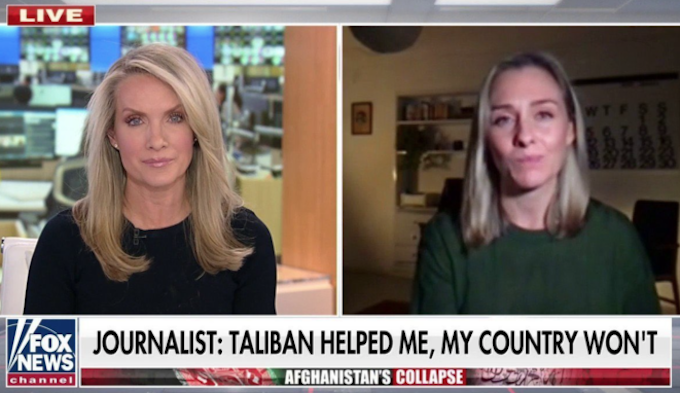
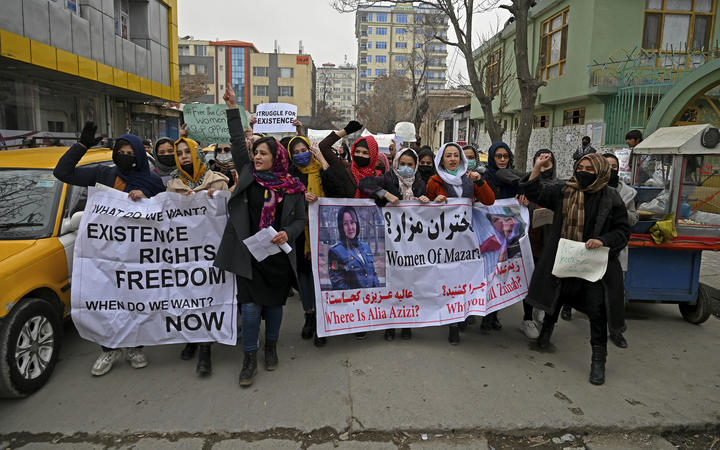
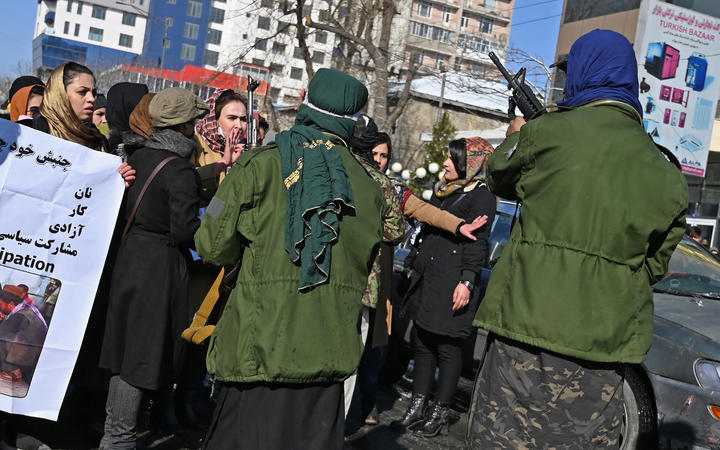
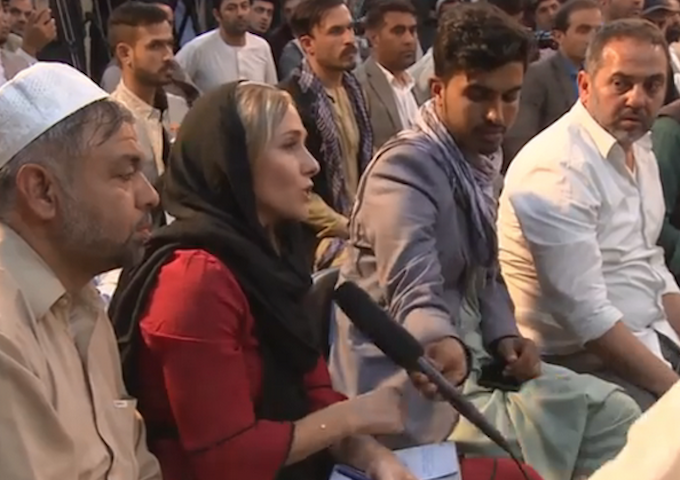

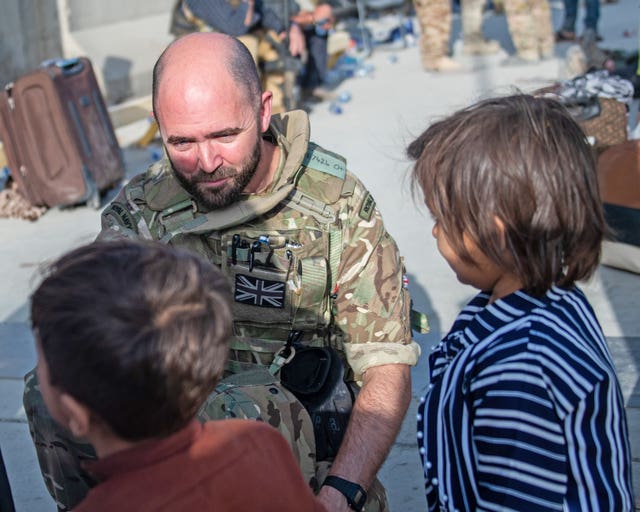



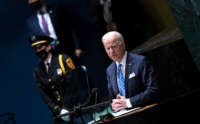
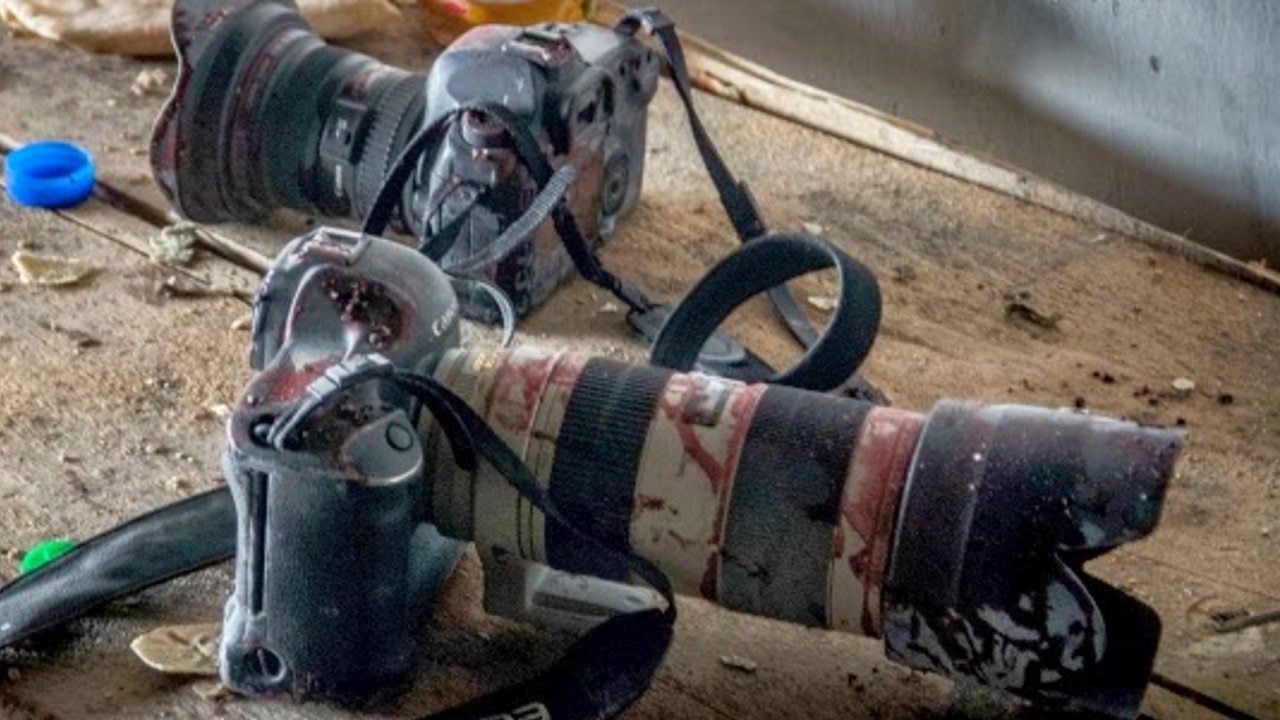


:format(jpeg)/cloudfront-us-east-1.images.arcpublishing.com/tgam/DGNOFBC4NJKPNNZUIAOJ2ALYK4.jpg)

